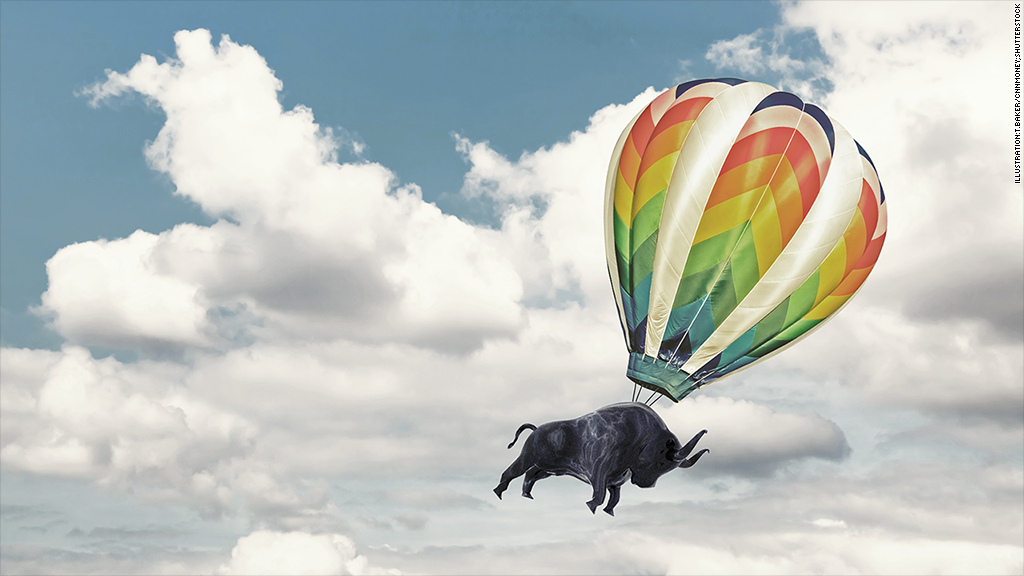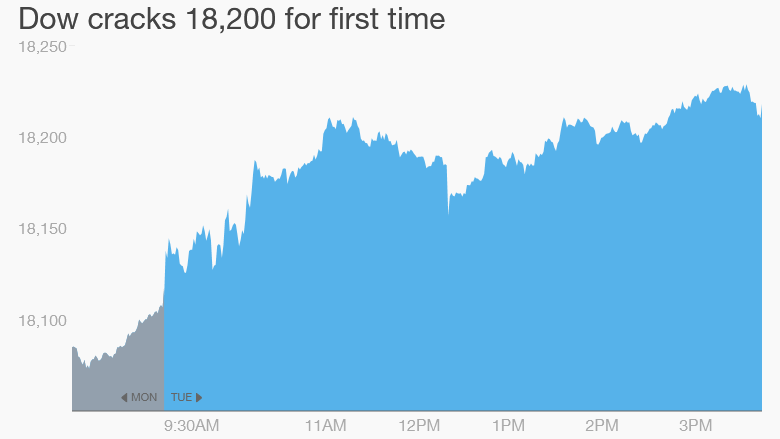
Pat yourself on the back if you had money in the stock market today.
Stock markets all around the world broke records. The United States, United Kingdom, Germany and Sweden all saw their main stock market indexes hit their highest levels ever.
Japan also closed at its best point since 2000, and most other European markets such as France, Belgium, Ireland and the Netherlands are at their highest levels since 2008 -- before the financial crisis.
What's driving all this euphoria? It's simple: central banks. Europe's central bank has promised an economic stimulus measure, making investors giddy. The cloud that was hovering over that plan was Greece. But news that the workout deal has been pushed by four months has put investors at ease and seems to indicate that Germany and others want to see the troubled nation stay in the euro.
On this side of the pond, America keeps humming along. Federal Reserve chair Janet Yellen sounded mostly upbeat about the economy in her testimony before Congress today.
"Our confidence has improved. When we raise rates, it will be a signal of confidence," she reiterated.
Related: Janet Yellen: Too many Americans aren't making it
Investors interpreted her statements at the Senate Banking Committee as a sign that rates won't go up until June at the earliest.
The Dow soared almost 100 points to close above 18,200 for the first time. The S&P 500 also notched a new record. Even the Nasdaq is roughly half a percent away from closing above 5,000 -- a level not seen since the height of the dot-com boom.

Related: Why this tech party isn't like 1999
Warning signs: In short, you would never know there are others fears lurking -- of economic slowdowns in China and Europe or ongoing conflicts between Russia and Ukraine and in parts of the Middle East.
There are also plenty of warning signs that stocks can't keep this pace going. Nobel prize winning economist Robert Shiller has noted that his metric to measure how expensive U.S. stocks are -- the Shiller P/E -- is back at levels last seen since before the financial crisis. That's not as bad as the dot-com bubble, but it's certainly pricey.
That said, the major difference between now and 1999-2000 or even 2007-08 is that companies have a lot more cash on hand. Apple is a great example. It has over $175 billion in its coffers.
The money is a big rainy day fund to help companies weather any downturns or, better yet, to boost growth.


